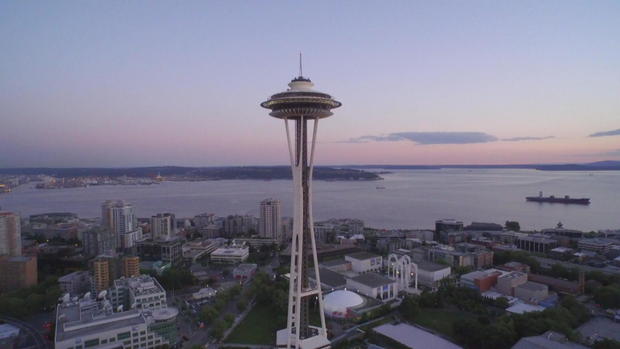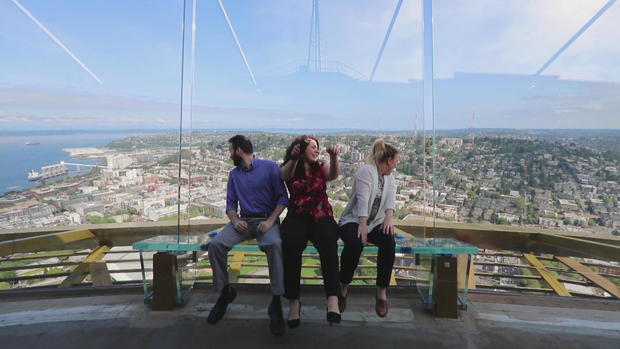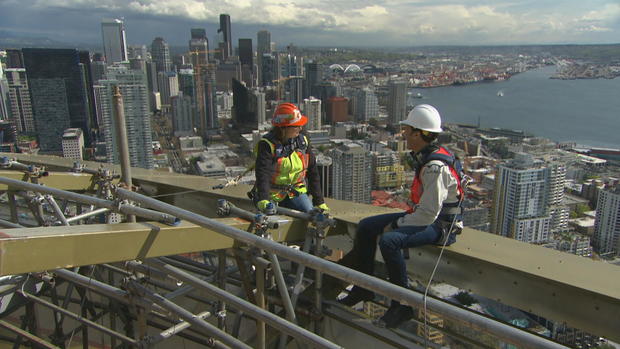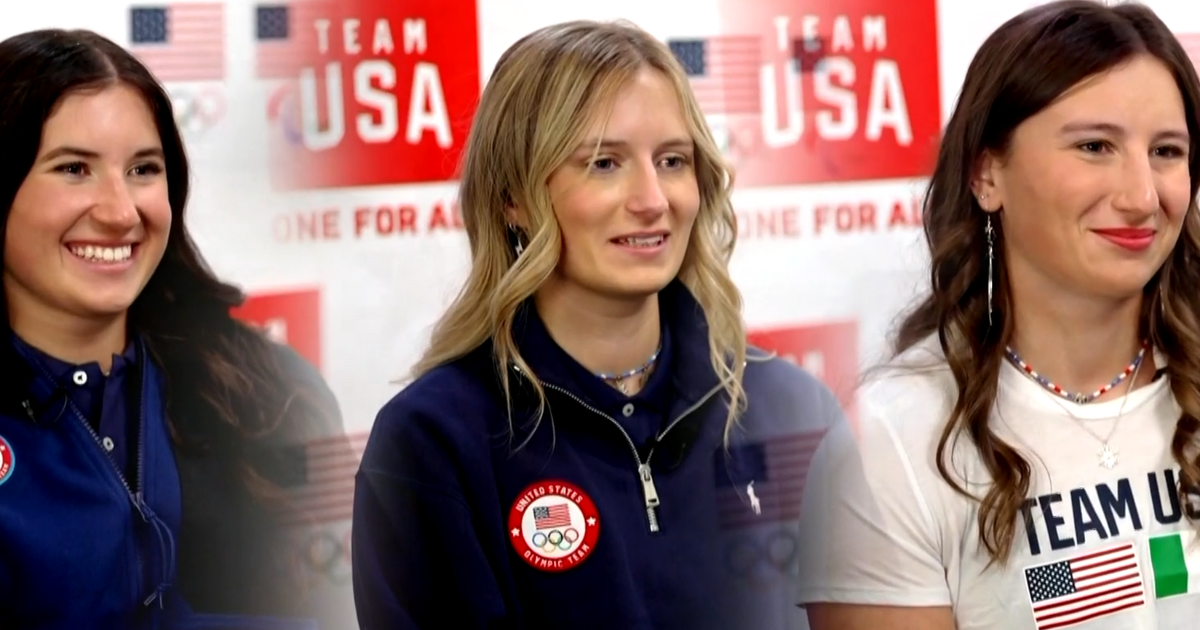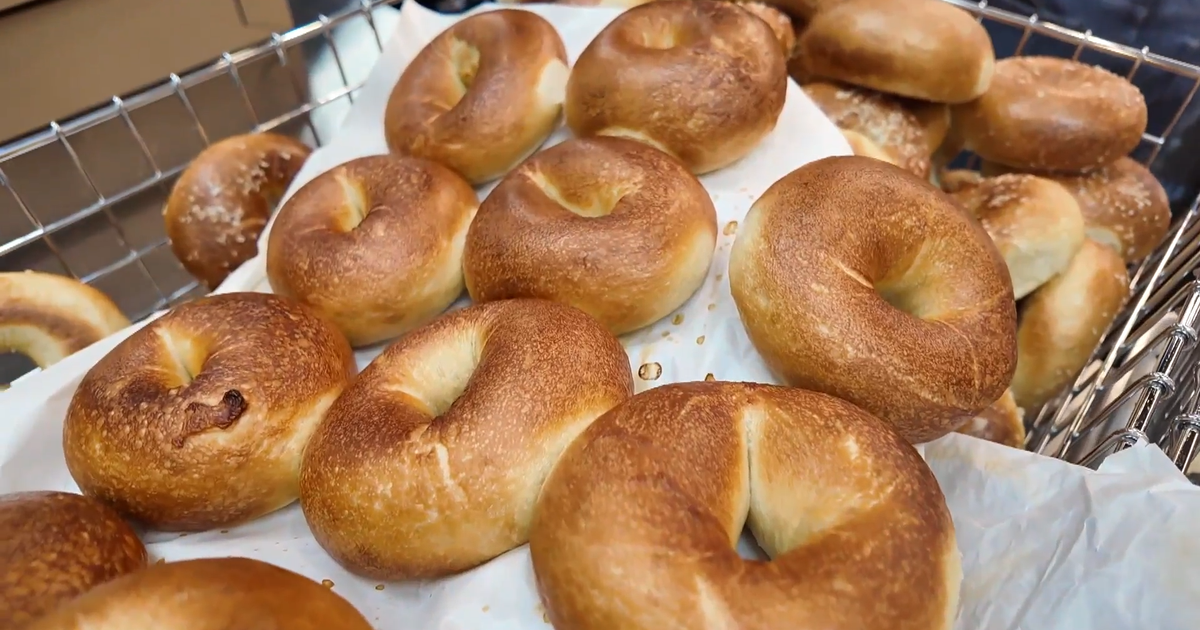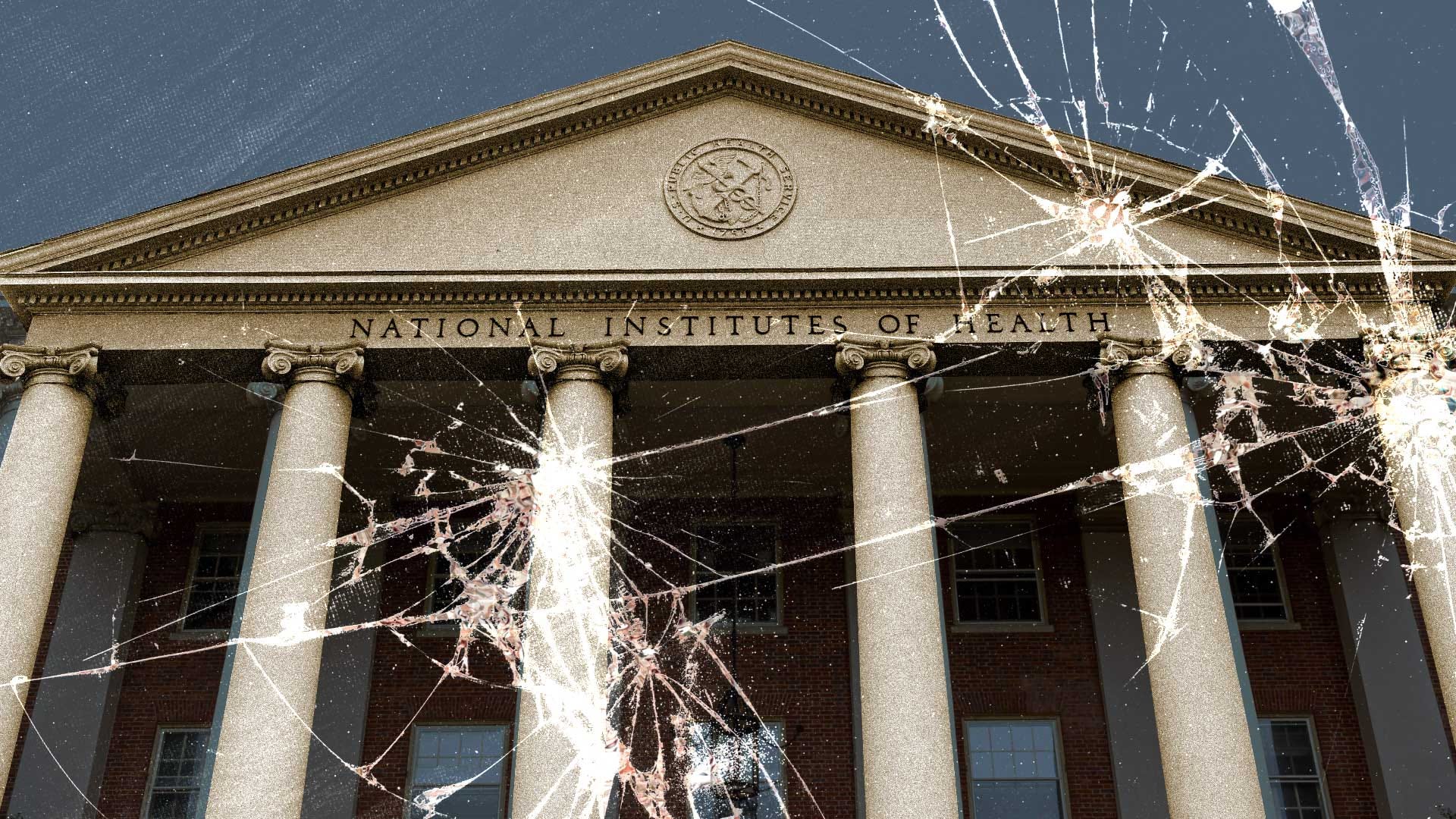Inside Seattle's Space Needle after its $100 million makeover
It is to Seattle what the Eiffel Tower is to Paris. Pointing 605 feet into the clouds, the Space Needle – the famous saucer in the sky – has been a symbol of the city for more than half a century.
It was the centerpiece of the 1962 World's Fair, a vision of a space-aged future. But having just turned 56, Seattle's beloved Space Needle had been quietly enduring a mid-life crisis. Architect Alan Maskin was put in charge of giving it what he calls a space lift – "mechanical systems, electrical, plumbing, elevators, everything."
"It just needed some TLC?" asked CBS News correspondent Lee Cowan.
"It was time for it to actually get some attention," Maskin said.
Futzing with existing architecture is always a risk, especially when it's iconic, so Maskin brought in a consultant – one of the only people left who knows the Space Needle inside and out.
"You could take these drawings and build another Space Needle right now," Gary Noble Curtis said with his original hand-drawn drafts. At 81 years old, he's one of the Space Needle's original structural engineers.
"It brings back a lot of memories. I'm looking at these trusses here, I remember when I designed those things, you know," Curtis said.
"Everything up here was all you," Cowan said.
"Yeah, yeah. Pretty much, yeah," Curtis responded.
But as beautiful as it turned out, even he admits it was a rushed job.
"The time frame was what was really a killer on the thing," Curtis said.
"How long did you have?" Cowan asked.
"13 months."
There were features he and the architects wanted to include but didn't have the time, the money or the technology to do. But today, Maskin has all three. Since September, an army of more than 150 construction workers has been humming almost around the clock, trying to make the aging needle as sharp as a giant tac again.
It's the largest investment ever made in the Space Needle. In fact, back in 1961, it only took about $5 million dollars to build the whole thing. The renovation is costing more than $100 million. Nobody ever said the future was going to be cheap.
"It's a construction project that's 500 feet in the air. You might as well be in outer space," Maskin said.
The aim was to improve the view, to make a platform in the sky feel less like a building and more like a cloud.
"It's like we've widened the lens in your eye, so you can see much, much more than you ever could before," Maskin said.
To do it, 48 glass panels of two-inch-thick glass, each weighing a ton, were carefully hoisted some 520 feet straight up. Some of them were guided by a remote-control jet pack of sorts to help counteract the winds off Puget Sound. High above, waiting for them to arrive, we found the project's field superintendent, Sonya Miller.
"It's always been in my back yard, the Space Needle, so to actually be here and doing this is, it's incredible," Miller said.
A lot of the workers here are local. Even the specially designed robot that puts the glass in place was assembled piece by piece up here.
It's not just the observation deck that's changed. The rotating restaurant has, too. Now instead of just looking out, diners will be able watch Seattle pass beneath their feet, making this the world's first spinning restaurant with a 37-ton see-through floor. Maskin said it will take about 45 minutes for a full rotation.
All of those changes won't effect the view of the Space Needle from the ground. But up in the skies, the experience for visitors is totally new, which has Miller bursting with pride.
"When you're out on the observation deck and you watching them and they're backing up and leaning backwards and you see the fear in their face and they're holding onto their family members, I mean it's fun. It's mission accomplished," Miller said.
The Space Needle's mission hasn't really changed, if you think about it. It may not be a view of the future anymore, but it's still a testament to possible.
When will the Space Needle reopen?
The soft opening begins this weekend, between the hours of 8:00 a.m. to 12:00 a.m. For more details, visit SpaceNeedle.com.
